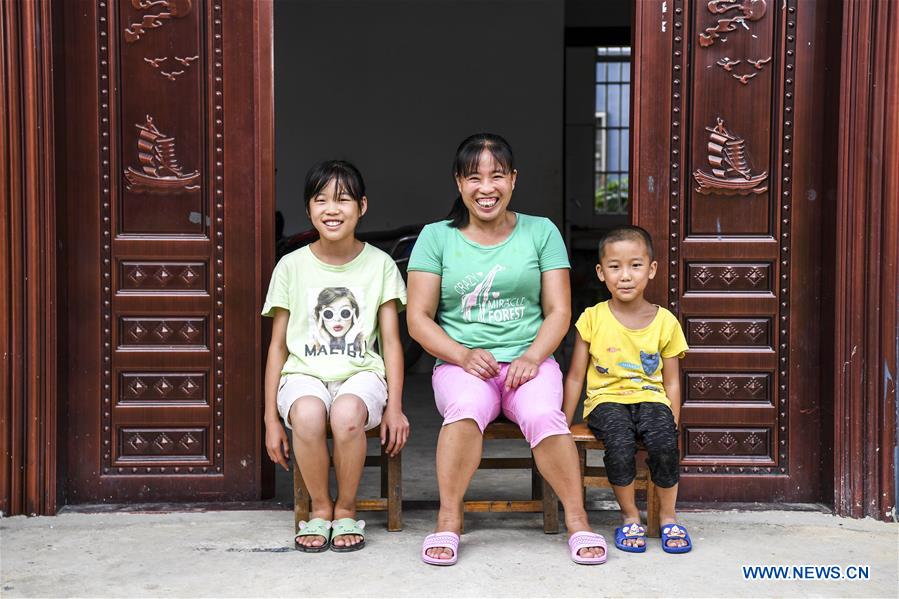Relocation helps villagers in Guangxi improve livelihoods
Xinhua,September 01, 2020 Adjust font size:
Zhang Meixiang and her children pose for a photo at the front door of their new house inside a poverty-relief resettlement site in Xia'ao Town of Du'an Yao Autonomous County, south China's Guangxi Zhuang Autonomous Region, Aug. 18, 2020. Du'an Yao Autonomous County is known as the "rocky kingdom," as 89 percent of its lands are covered by karst mountains. Suffering from rocky desertification, Du'an has low agricultural yields. This, coupled with poor transportation, makes it one of the most impoverished counties in Guangxi. Locals used to live deep in bare rock mountains without paved roads, tap water or electricity. They had to grow corn and rear livestock to sustain a meager living. Since the long and bumpy journeys to the nearest hospital were costly, villagers were not even willing to see a doctor unless their healthy conditions became too critical. Kids in the mountainous areas knew nothing about the outside world. They often played around in shabby clothes, without a kindergarten to go to. When they reached school age, they had to trek hours to attend classes. For the people here living in inaccessible, uninhabitable and disaster-prone areas, relocation has become the last but also the most effective resort to relieve poverty. By the end of 2019, a total of 20 poverty-relief resettlement sites had been constructed in the county, with more than 45,000 people relocated to new houses in towns with convenient traffic, better environment and modern facilities. Each family was provided a house with electricity, gas, tap water and flush toilets. The relocation communities were also equipped with all sorts of infrastructure including clinics, kindergartens, schools, basketball courts and service centers. Improved healthcare makes it easier for people to seek medical help if they don't feel good. With new homes being closer to schools, children no longer have to trudge a long distance for schooling. Restaurants, hair salons and grocery stores have mushroomed in the relocation sites. Workshops have been established nearby and public welfare centers have been offered, which enabled the relocated residents to work at their doorsteps. In the future, the county will make further efforts in developing specialty industries and labor-intensive sectors to help the relocated improve their living conditions. (Xinhua/Cao Yiming)

f2c59a06-378b-4ad4-a127-2f687948584a.jpg)